WorldCom Case Study: Leadership, Ethics, and Organisational Theory
VerifiedAdded on 2020/10/22
|5
|756
|395
Case Study
AI Summary
This case study analyzes the leadership of Bernard Ebbers at WorldCom, focusing on his bureaucratic and transformational leadership styles and their impact on the organization. The analysis examines the unethical practices employed to achieve success, the influence Ebbers exerted over his employees, and the motivational theories that underpinned his approach. It explores the importance of perceived fairness and trust in supervisors, key elements that were both present and absent in the WorldCom case. The study references relevant literature to support its arguments and offers insights into the consequences of unethical behavior and the critical role of ethical leadership in organizational success. The analysis highlights how Ebbers' leadership style, while initially effective, ultimately led to significant problems due to a failure to control unethical behavior within the company. The case study provides a comprehensive overview of the organizational dynamics at play, including the importance of ethical considerations and the impact of leadership decisions on employee behavior and overall organizational outcomes.
1 out of 5
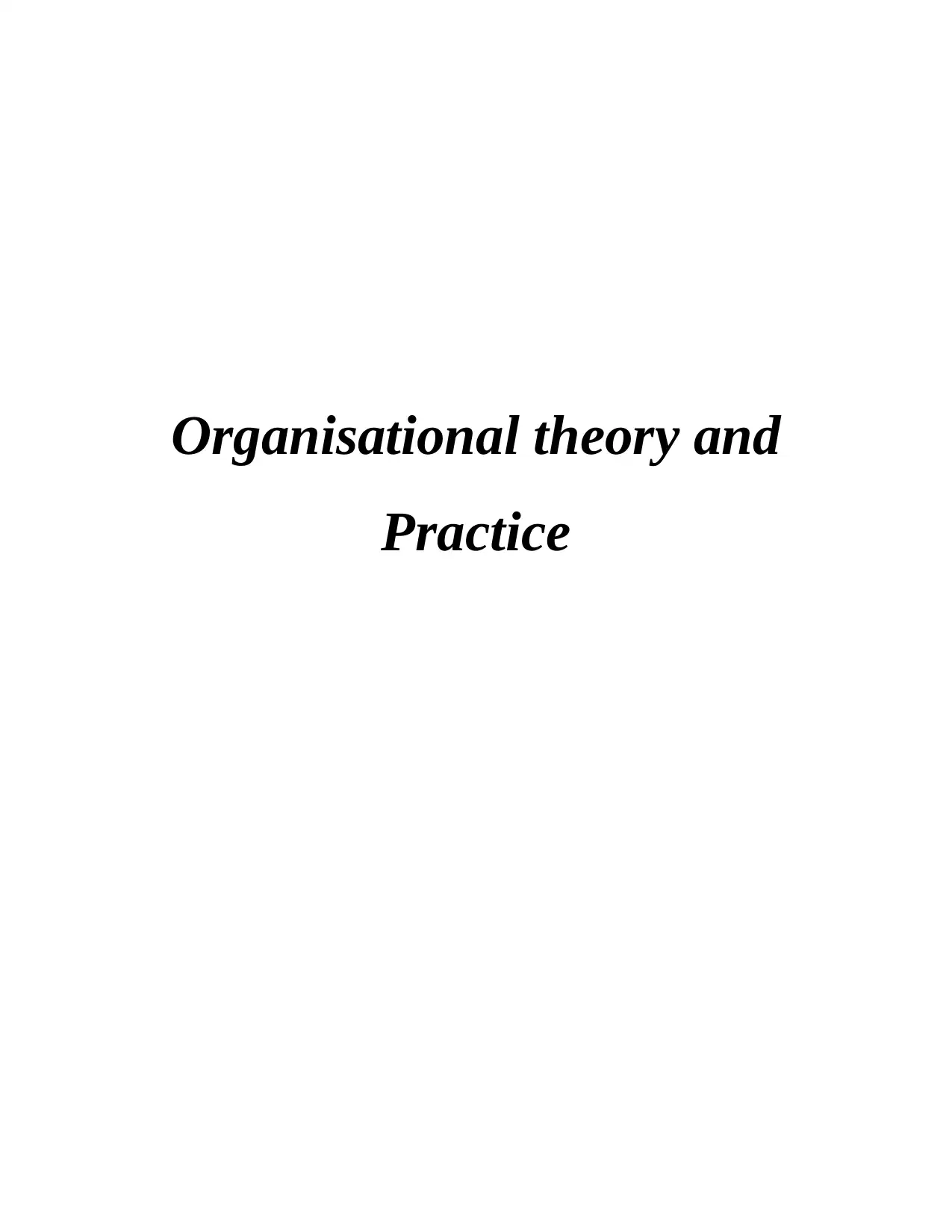
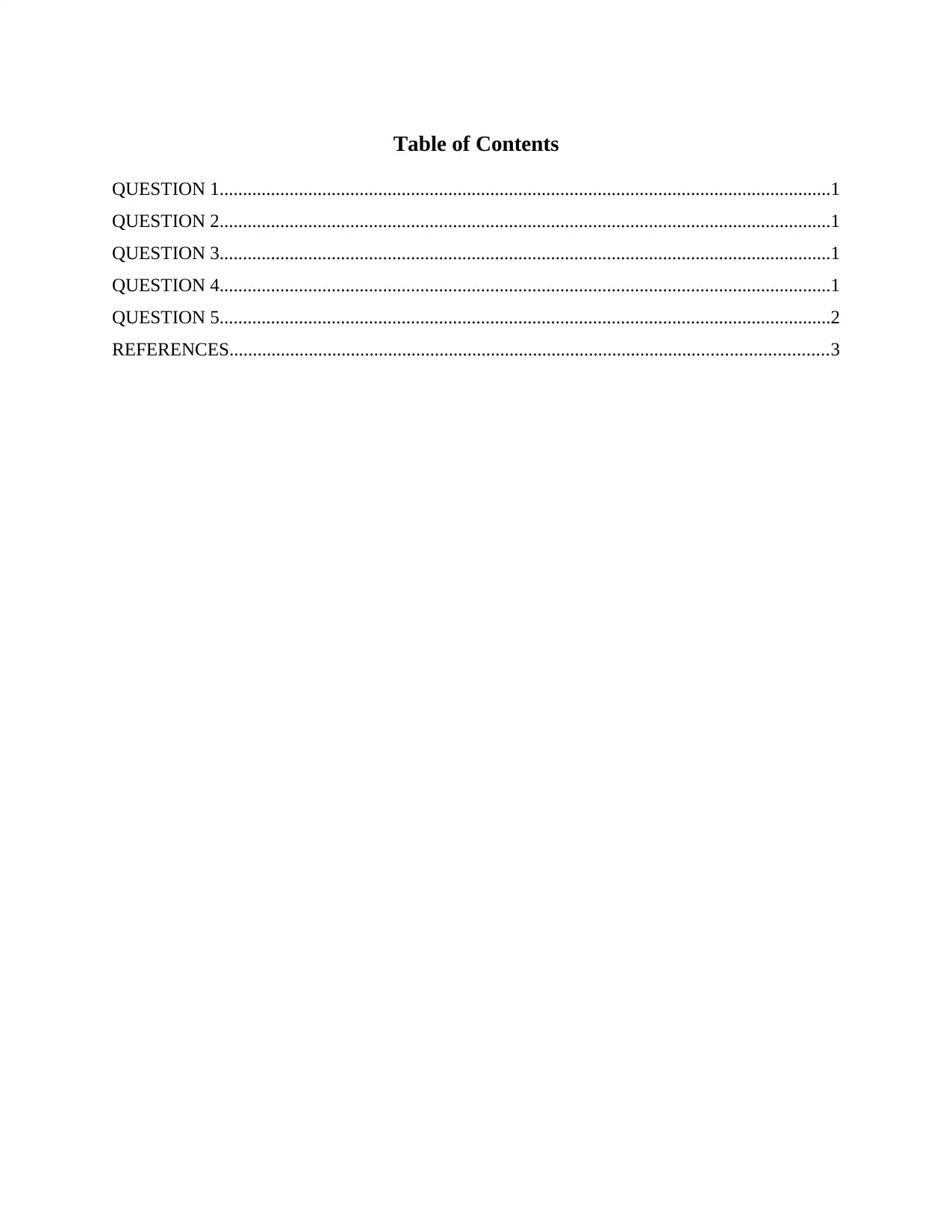
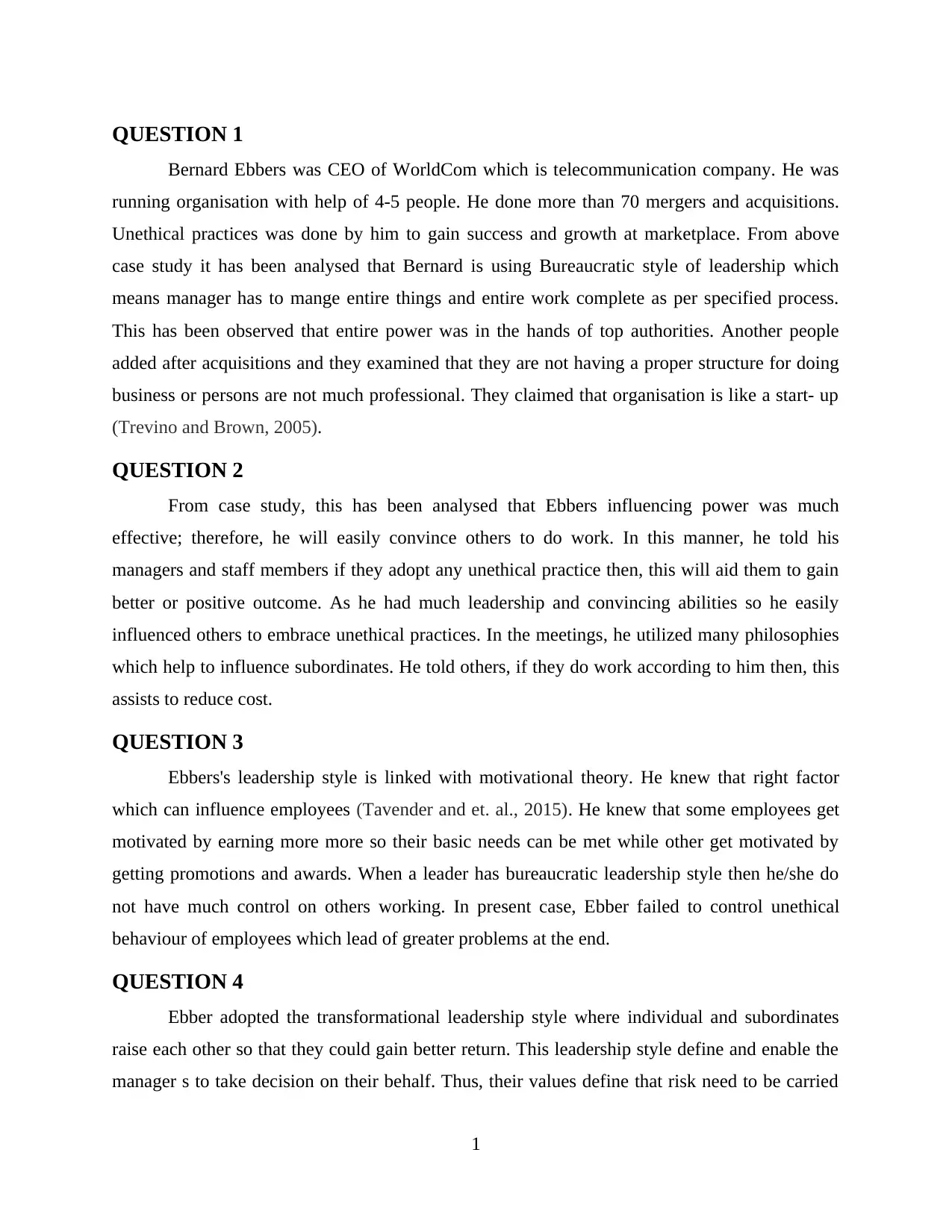

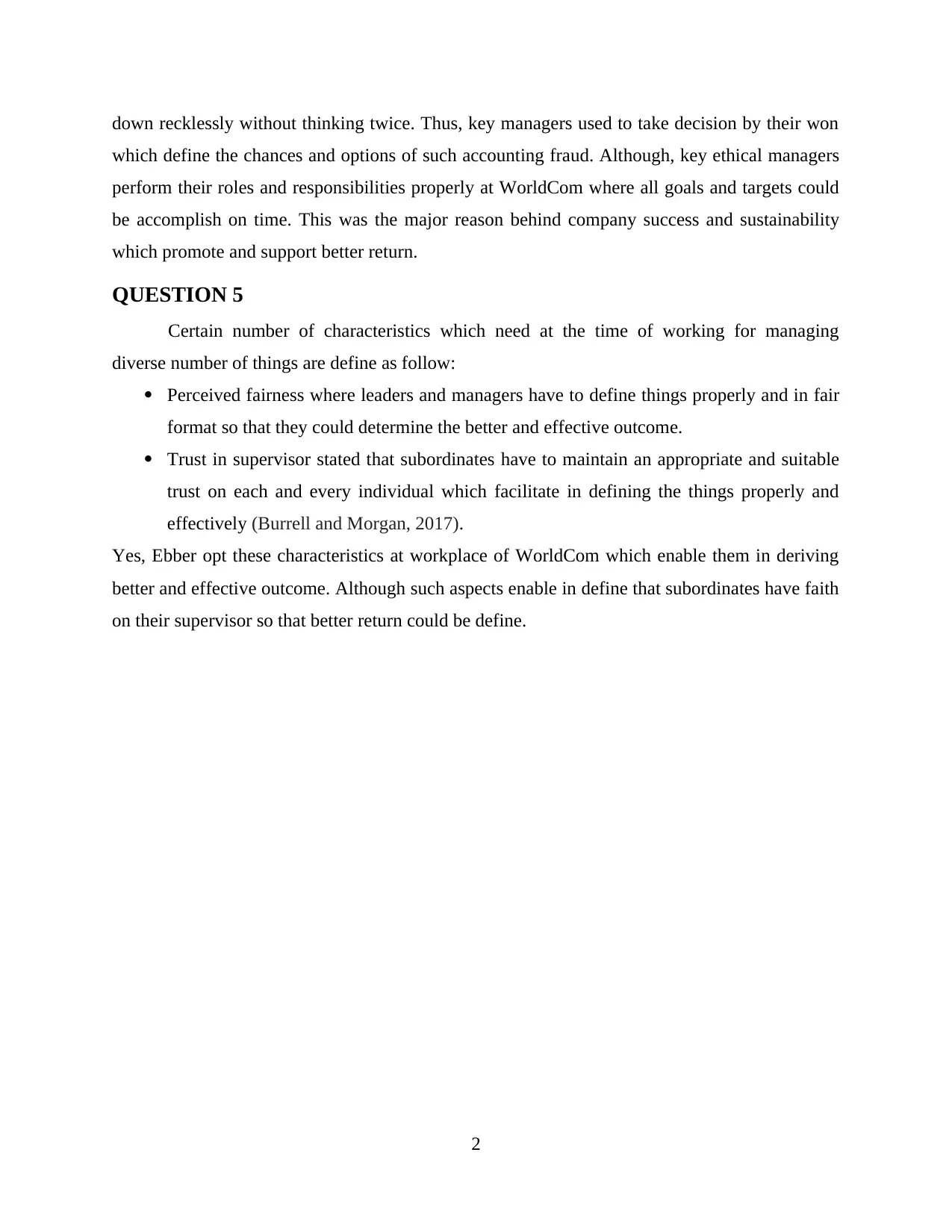
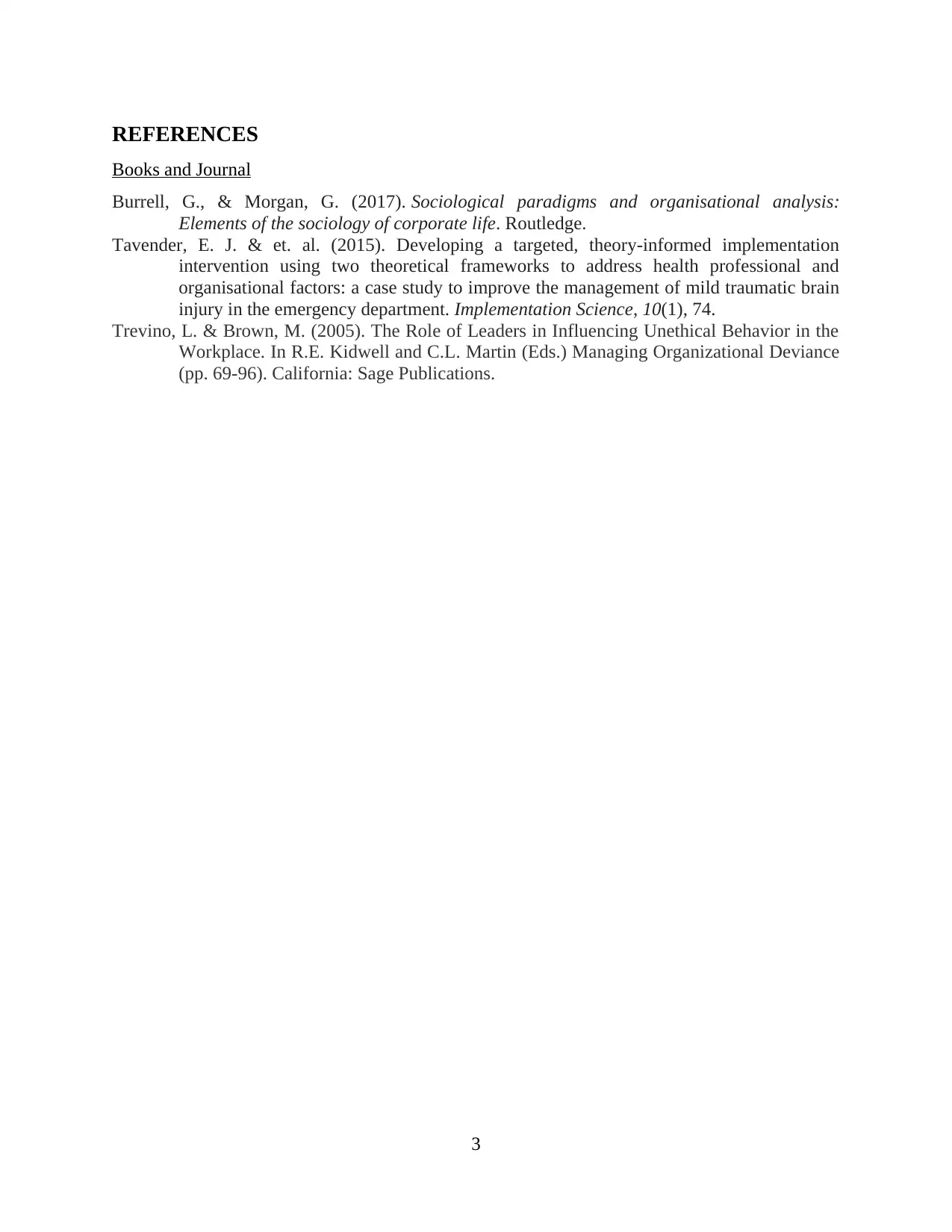






![[object Object]](/_next/static/media/star-bottom.7253800d.svg)